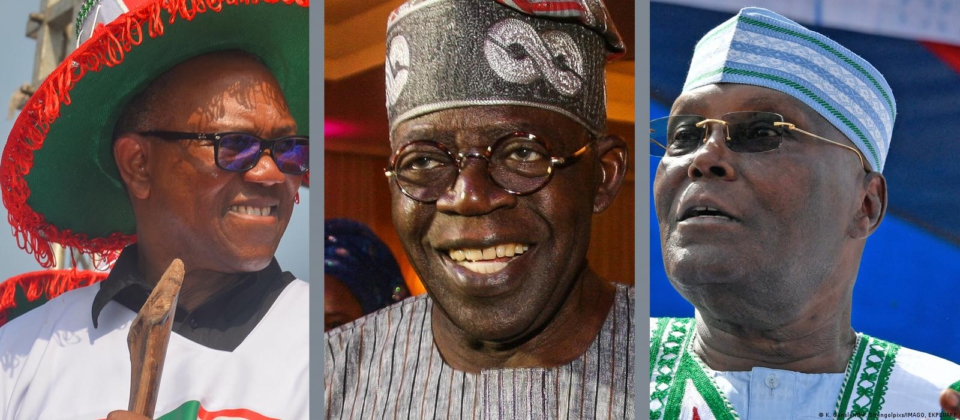Only three out of 18 candidates stand a realistic chance of winning the presidency on February 25. Bola Tinubu, Atiku Abubakar and Peter Obi each believe they can win the election in Africa's most populous state.
As the campaign period leading up to the February 25 presidential election neared its end, the ruling All Progressives Congress candidate Bola Tinubu and Atiku Abubakar of the opposition Peoples Democratic Party both held rallies to mobilize votes and increase their chances of winning in what appears to turn out to be a very close contest.
Labour Party candidate Peter Obi, who has emerged ahead of all other 17 candidates in most polls, meanwhile preferred to take to social media to reach out to his young, urban following.
Aware of the issues that will dominate the votes, Tinubu, Atiku and Obi have all promised to revive the battered economy and fight spreading insecurity as well as endemic corruption.
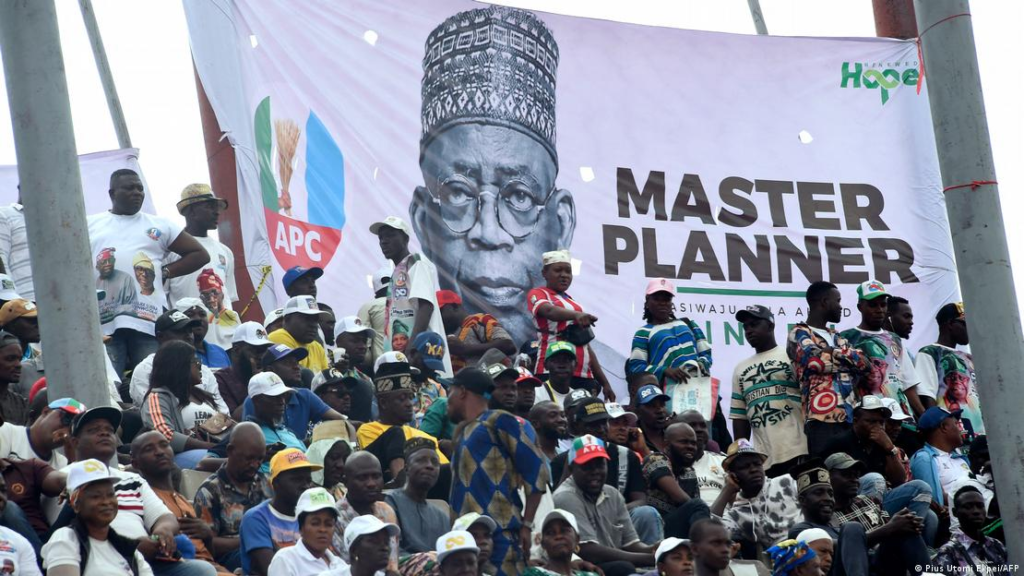
Bola Tinubu: 'It's my turn'
Bola Ahmed Tinubu, the former governor of Lagos from 1999 to 2007 and a multimillionaire, is an ethnic Yoruba Muslim from the country's southwest. A co-founder of the All Progressives Congress in 2013 alongside outgoing President Muhammadu Buhari, the 70-year-old likes to expound on his role as kingmaker.
But now, he said, "it's my turn." While he faces some stiff competition, he has the major advantage of being able to use the state apparatus to mobilize support for the incumbent party in power.
Tinubu's political career started in the 1990s, when he voiced his opposition to military rule in Nigeria. He has spent many years building political, ethnic and religious alliances throughout the country, before taking his stab at the presidency.
Despite his erstwhile opposition to military, he has promised to expand the military to end the Islamist insurgency that has been raging in the north of the country for 13 years. But voters have heard that promise before from Buhari, who has failed to deliver on it.
Tinubu must also contend with accusations of corruption and misappropriation of funds, allegations which he has denied. So far, nothing has stuck despite documents being shared by the US Justice Department dating back to 1988, which show that accounts in his name held proceeds from sales of heroin.
One charge against him brought by a firm two years ago was settled out of court. He was also cleared twice by Nigeria's Code of Conduct Tribunal of allegations of breaching the code of public officers.
That hasn't stopped Tinubu's opponents from using the allegations as ammunition in the battle for the presidency, including charges saying he was involved in vote buying in 2019.
Tinubu has also been fighting off suspicions that his health is failing by posting videos of himself exercising on a bike. Since President Buhari had to undergo repeated medical treatments abroad, Nigerians have become wary of having a head of state with health problems.
Tinubu's running mate is Kashim Shettima, a Muslim and former governor from northeastern Borno state. The choice was aimed at atracting voters in the predominantly Muslim North. However, the decision has upset many Christians, who regard it as a break with the tradition of having a mixed-faith ticket.
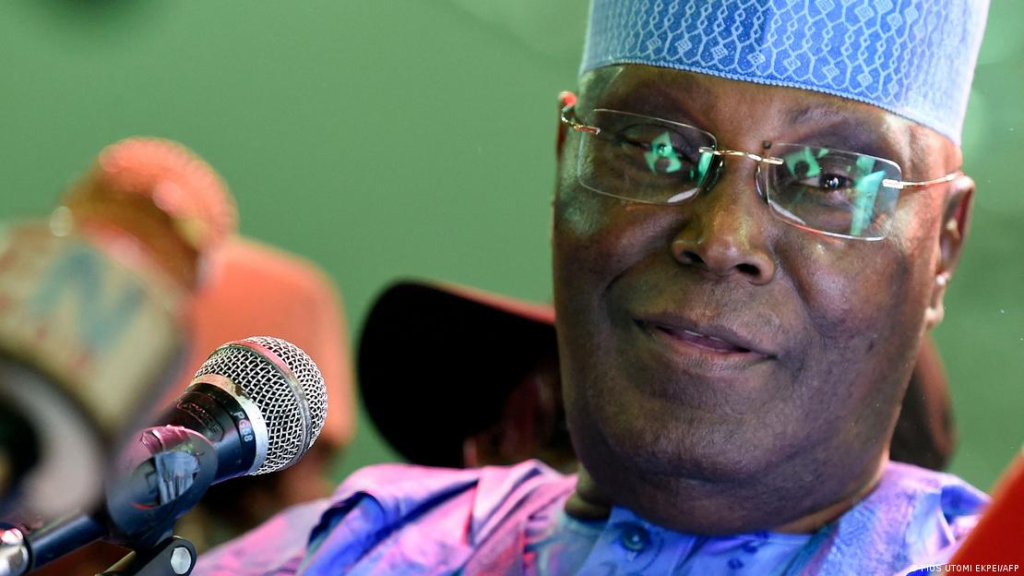
Atiku Abubakar: Faith in liberalization
Former Vice President Atiku Abubakar, 76, is running for the sixth, and probably last time. Another multimillionaire, Abubakar is a northern Muslim from the Fulani ethnic group. When Buhari was still in politics, Abubakar's chances to win the presidency were seen as slim. But with the current president out of the competition after two consecutive terms, Abubakar now hopes to win the polls in the north, where the largest blocks of voters reside.
But the septuagenarian will likely struggle to capture the younger electorate in a country where most of the nearly 10 million newly registered voters this year are under the age of 34.
To highlight his track record, Abubakar points to his term as vice president between 1999 and 2007, when he headed an economic team that implemented successful reforms in the telecommunications, pensions and banking sectors.
He likes to take credit for a particular policy that he says led to jobs and economic growth during this time, and which he has promised to repeat for the country. The policy in question is designed to allow the private sector to play a greater role in the economy, thus liberalizing the exchange rate of the naira currency.
Like Tinubu, Abubakar is dogged by accusations of misappropriation of funds and cronyism dating to his time in public office. He, too, has denied all wrongdoing.
And like Tinubu, Abubakar's solution for the rampant insecurity issue in Nigeria is to provide more equipment to the military, which is battling an Islamic extremist insurgency in the northeast, rebels in the northwest and secessionists in the southeast, as well as criminal gangs across the land.
Abubakar has chosen Ifeanyi Arthur Okowa for his running mate, a Christian governor from the oil-producing Delta state, hoping to thereby generate support in the largely Christian south. This is all the more important, as there is a feeling among southern governors that it was their turn to present a candidate for the presidency after a northerner held office for the past two terms.
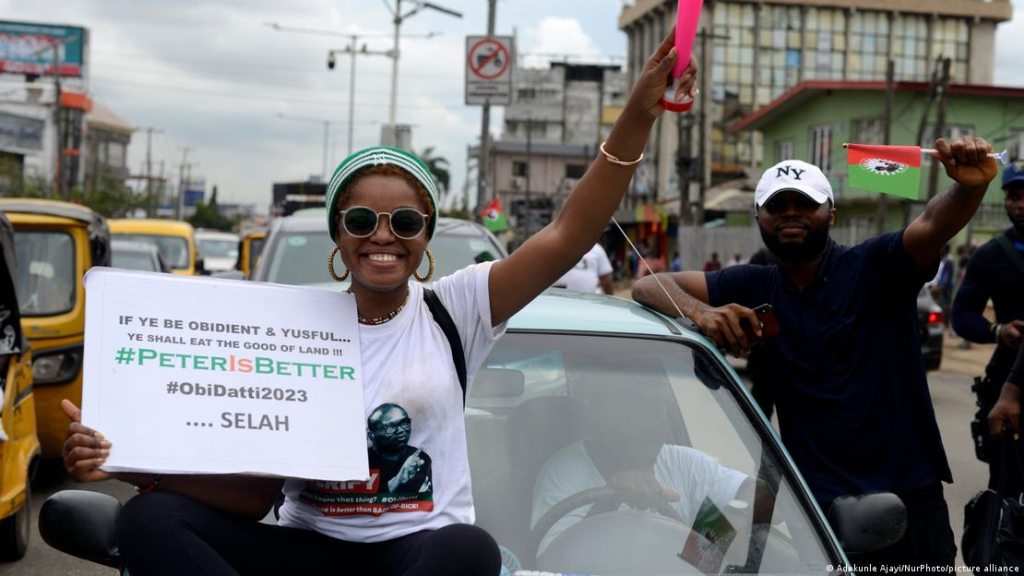
Peter Obi: Relying on the Obi-dients
Peter Obi of the Labour Party has distinguished himself from the two main contenders by being only 61 years old. He has framed himself as the anti-establishment candidate in hopes of harnessing votes among those who feel anger at the status quo.
The former governor of Anambra has managed to win the support of mostly young, urban southern Nigerians hit by economic hardship, joblessness and insecurity. They call themselves the 'Obi-dients.'
Some recent polls have seen Obi ahead in the race, but experts caution that these surveys are flawed, as many Nigerians refuse to disclose whom they are voting for.
A high voter turnout could significatly bolster his chances of winning in a country which is notorious for apathy at the polls, analysts have said. According to the Nigerian Electoral Commission, only 35% of registered voters went to the ballot boxes in 2019.
Obi is a Christian Igbo, an ethnic group from the southeast which has factions agitating to secede from Nigeria. In 2019, he was Abubakar's running mate for the Peoples Democratic Party but left the party, claiming that he was "disenchanted" by the nomination process.
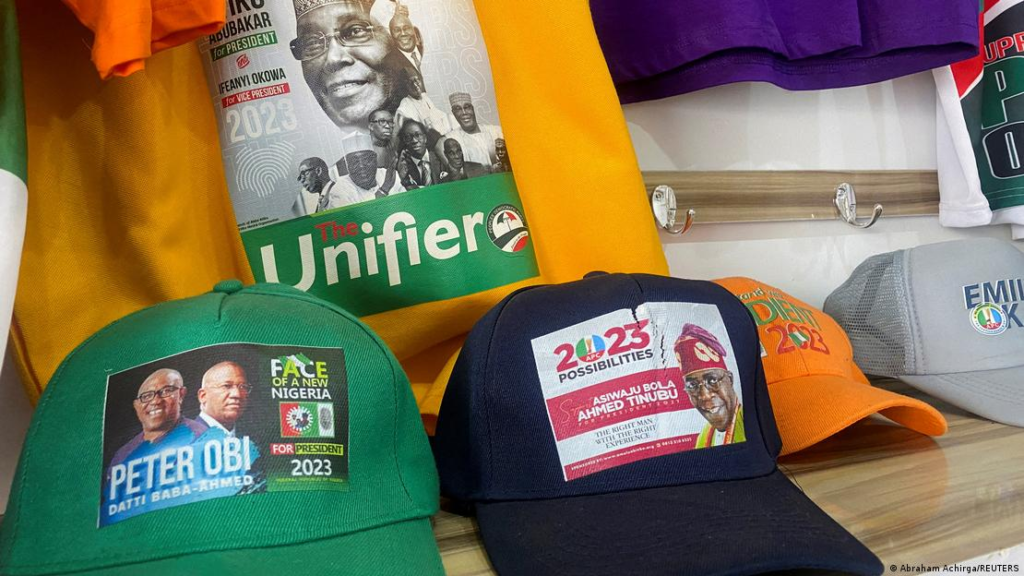
Obi has pointed to his performance as Anambra's governor, which posted a rare budget surplus 10 years ago. He has also maintained that he is "clean" as opposed to his rivals, although he has been accused of dodging taxes, a charge he has denied.
Another candidate to promise better funding for the military, Obi has also argued for the need to diversify the economy in order to reduce Nigeria's reliance on oil exports. He wants to renegotiate the country's debt and enable the private sector to thrive.
Obi has also stated his conviction that this time around, Nigerian voters would eschew religious, ethnic and tribal loyalties which typically help the major parties dominate elections. But to be on the safe side, he has chosen Yusuf Baba-Ahmed as his running mate, an economist and former senator from the northern Kaduna state.
Latest Stories
-
TotalEnergies CEO defends company against East Africa abuse allegations
3 hours -
Niger plans to cut number of Chinese oil workers, documents show
3 hours -
Zelensky says ‘US silence’ over Russian attacks encourages Putin
3 hours -
South Africa town leader ‘sad’ about Trump’s misuse of white crosses video
3 hours -
King’s invitation to Canada sends a message to Trump – and the world
4 hours -
EU needs until 9 July for US trade talks, chief says
4 hours -
Americans remember George Floyd on fifth anniversary of death
4 hours -
Lewandowski double seals Barca final day win at Athletic Club
4 hours -
First Lady launches GHANASCO’s 65th anniversary, praises school’s legacy
4 hours -
‘Big Four’ reunite at Nadal’s French Open farewell
5 hours -
Villa issue complaint after refereeing ‘big mistake’
5 hours -
Administrative fees at ports shouldn’t be priced in dollars – Institute of Freight Forwarders
5 hours -
Baba Rahman spotted in Black Stars camp ahead of Unity Cup
6 hours -
Omar Sterling is my all-time favourite Ghanaian rapper – Gyakie
6 hours -
Mohammed Kudus scores to seal 3-1 win for West Ham against Ipswich Town
6 hours

